Budget Reconciliation: Tracking the 2025 Trump Tax Cuts
Our experts are providing the latest details and analysis of proposed federal tax policy changes.
14 min readAlex Muresianu is a Senior Policy Analyst at the Tax Foundation, focused on federal tax policy. Previously, Alex worked on the federal team as an intern in the summer of 2018 and as a research assistant in summer 2020.
He attended Tufts University, graduating with a degree in economics and minors in finance and political science in February 2021. He also worked for the Pioneer Institute in 2019, spent a summer as a journalism intern at Reason magazine, and written op-eds for various print and online publications.
Alex originally hails from outside Boston, and enjoys Dungeons and Dragons, ’80s movies (Back to the Future, Indiana Jones, the Schwarzenegger filmography, Die Hard, etc.), and classic rock.

Our experts are providing the latest details and analysis of proposed federal tax policy changes.
14 min read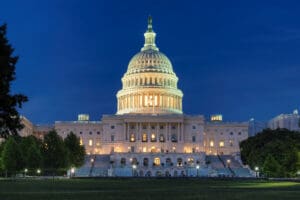
Our preliminary analysis of the Senate Finance tax plan finds the major tax provisions would increase long-run GDP by 1.1 percent and reduce federal tax revenue by $4.7 trillion over the next decade.
11 min read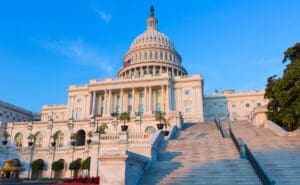
Senate Republicans have advanced legislation to extend many provisions of the 2017 Tax Cuts and Jobs Act (TCJA) alongside dozens of new provisions, following broadly similar legislation put forward by House Republicans.
7 min read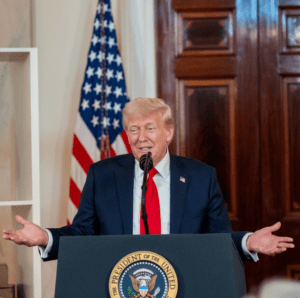
If the federal government really wanted to make saving more accessible for taxpayers, it would swap the proposal for Trump Accounts to replace the complicated mess of savings accounts currently available with universal savings accounts.
4 min read
The final House bill makes impressive cuts to the IRA green energy tax credits, but it does so in part by introducing more complexity.
5 min read
Our preliminary analysis finds the tax provisions increase long-run GDP by 0.8 percent and reduce federal tax revenue by $4.0 trillion from 2025 through 2034 on a conventional basis before added interest costs.
9 min read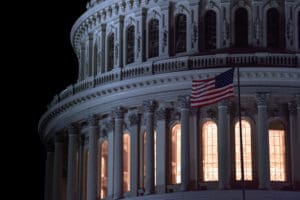
The House reconciliation bill includes numerous changes to the tax code: good, bad, and ugly. However, the new corporate alternative minimum tax, or CAMT, goes largely untouched.
4 min read
The EV fee in the reconciliation package would help the fiscal situation but would overcorrect the hole in the gas tax base EVs create. There are intermediate options, such as VMT taxes for EVs and commercial traffic or pairing flat EV fees with gas and diesel tax increases, that would be incrementally better than the reconciliation package’s approach.
7 min read
Tax simplification has two aspects. The first is a code without a mess of targeted provisions for various social policy goals. The second is a code with provisions that are simple and easy to comply with. The bill succeeds at the first, but fails at the second.
7 min read
The Trump administration advocates an “energy dominance” agenda to boost US energy production and lower costs. Its tariff agenda runs directly counter to it.
5 min read
Catastrophic rhetoric about US manufacturing is not justified. The tariffs are extremely counterproductive. Still, all is not well in the US manufacturing sector. What should we do?
7 min read
As Congress attempts to prevent the expiration of major Tax Cuts and Jobs Act provisions, it needs to find ways to pay for them. Ideally, it should use the least economically harmful means possible.
3 min read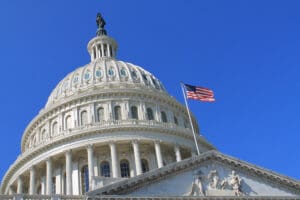
The Inflation Reduction Act (IRA) introduced a series of new targeted tax breaks, many of which seem to be much more expensive than originally forecasted. Understandably, repealing these subsidies is a key option for policymakers looking to pay to extend the expiring broader tax cuts passed in the Tax Cuts and Jobs Act (TCJA).
7 min read
While fixing infrastructure funding has not been a focus of the tax expiration debate, it would be a smart way to pay for at least a small portion of the expiring tax cuts. In recent years, highway funding has exceeded highway revenues, and the introduction of electric vehicles has made the gas tax increasingly obsolete.
7 min read
While LIFO is rarely the main focus of the overall tax policy debate, it is a sound structural piece of the tax code. LIFO comes close to matching the economic ideal while still remaining true to the accounting principle.
15 min read
As lawmakers work through the reconciliation process, permanently enacting improvements to deductions for capital investment and research and development (R&D) costs will create an economically powerful package.
8 min read
Investment matters across the economy, and policymaking should reflect that.
4 min read
Broad, pro-investment tax policy matters for growth, and the US has plenty of opportunities to make improvements, particularly given the advantages our cross-Pacific rival confers on its firms.
5 min read
How does tax policy shape a nation’s competitiveness? Today, we’re diving into the showdown between the US and China, exploring how China’s enticing tax incentives pose a formidable challenge to America’s economic supremacy.

On tax policy, Harris carries forward much of President Biden’s FY 2025 budget, including higher taxes aimed at businesses and high earners. She would also further expand the child tax credit (CTC) and various other tax credits and incentives while exempting tips from income tax.
17 min read